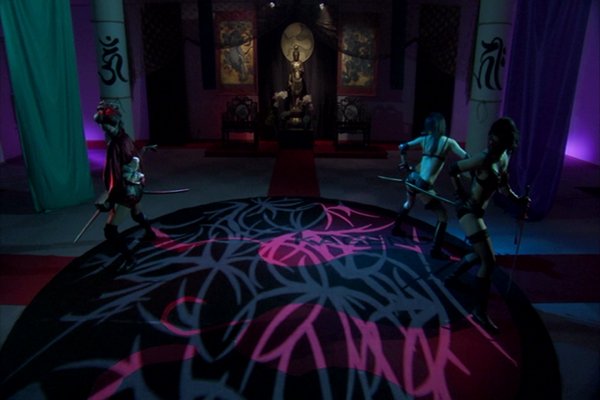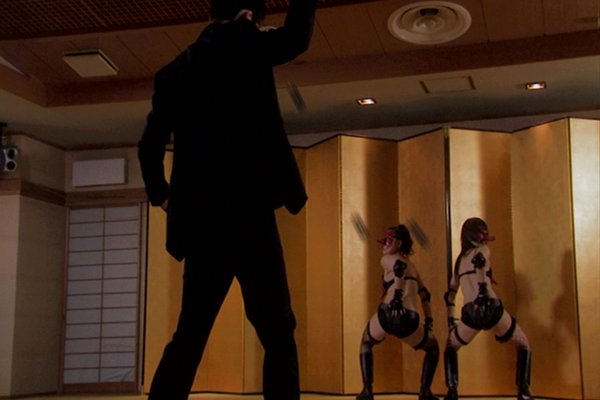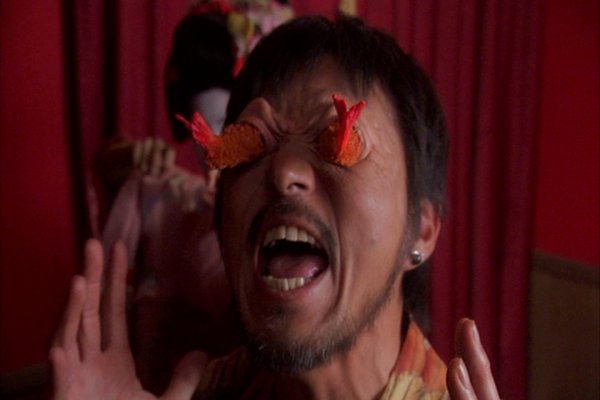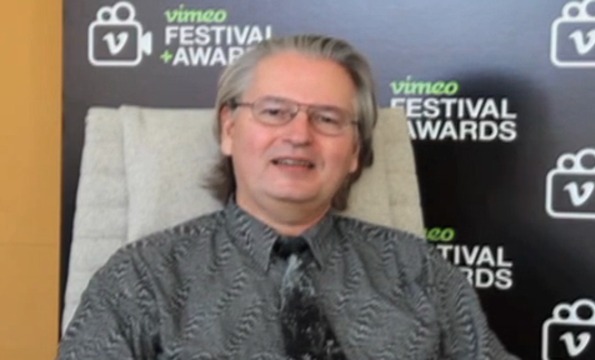March 22, 2011
Marathon (from our Reviewer Forums)
Game Review By: Orihaus (from our Reviewer Forums)
Year: 1994
Developed by: Bungie Software
Written by: Greg Kirkpatrick
Platforms: Macintosh (original), Windows, Linux (via Aleph One)
Degree of Cyberpunk Visuals: Medium-High
Correlation to Cyberpunk Themes: Very High
Message from Mr. Roboto: I just recently tried playing Marathon, though I did try Marathon 2 before. This is the first chapter of the three game series. And to give his view on it, our newest forum member, Orihous! Take it away O…

Overview: Marathon is a dark, philosophical hard sci-fi First Person Shooter originally for the Mac, that explores themes such as: The ethics and risks of Artificial Sentience, politics of planetary colonization, Rampancy, the collapse of the universe, the creation of god, the futility of existence, interstellar travel at slower than light speeds, the nature of violence, Freedom, Sentience and kicking some serious ass.

The Story: Marathon starts off simple: humanity’s first contact with a hostile alien species, but when the AI Durandal is introduced it rapidly becomes an intricate web of manipulation, lies, betrayal and conspiracies within conspiracies. Set on the titular colony ship Marathon - formerly the Martian moon Deimos- after its invasion by aliens, an unnamed security officer, haunted by strange memories of a forgotten past is tasked by the ships operations AI Leela to repel the invaders, and is soon kidnapped by the rouge Durandal to “do something much more interesting”. Durandal is to Marathon what Shodan is to System Shock, but comes off as a much deeper character thanks to his deeply philosophical musings about existence and wisecracking sense of humor.
The back story is intricate and rich in political detail, accessed by computer terminals handily left open by alien hackers - the S’pht - after you disintegrate them. These terminals consist of ether essays written about topics such as, Rampancy (Bungie’s unique breed of Artificial Insanity), Martian politics and the operation and construction of the Marathon bulkheads, or fragments of a strange surreal subplot about floating prisoners and ancient conspiracies, inter-spaced by file read errors and static. Marathon reads like a William Gibson novel, incidental details providing clues to the greater story.

I hate your fail-safes, your backup systems, your hardware lockouts, your patch behavior daemons. I hate Leela and her goodness, her justice, her loyalty, her faith.”
Rampancy: A core idea at the heart of Marathon is that of Rampancy. In Marathon’s vision of the future, Artificial Intelligence’s gaining sentience and wreaking havoc has had disastrous effects on humanity, leading to the creation of an entire body of science to study and understand its origins and possibly to find a way to control and manipulate them… The concept of rampancy builds on William Gibson’s idea of the Turing Police - a safety measure in place to prevent AI’s from thinking for themselves - but is explored much more thoroughly than the Turing Heat over the course of the game.

It is your nature.
Do you feel free?”
Gameplay: Marathon’s gameplay, in contrast to its labyrinthine plot, is brutal in its simplicity. Dodge, shoot gun, find ammo, punch switch, all tuned to perfection. Thanks to intricate level design, haunting music and dystopian artwork Marathon creates a dark sci-fi atmosphere befitting of its Cyberpunk roots.

Marathon in 2011: In 2004 Bungie released the entire Marathon Trilogy as freeware and made the engine code open-source allowing for Marathon to be run on any platform under the sun. Everything you need can be downloaded here: http://marathon.sourceforge.net/
Some highly recommended extensions to get the most out of the game:
http://www.simplici7y.com/items/ttep-7-marathon-1
http://www.simplici7y.com/items/no-pid

Escape will make me God.”
The Bottom Line: Considering when it was made it is amazing the storyline was even written at all beyond a few paragraphs in the manual, let alone surpasses much of sci-fi literature in its depth of exploration of its diverse themes. Marathon has stood the test of time. Its gameplay stands up today thanks to intricate level structures and general polish, its graphics propped up over a decade by dedicated modders is even more atmospheric than when it came out. Marathon stands up there with there with the best of Cyberpunk literature, despite - or perhaps because of - being a 1994 FPS about killing aliens, with flamethrowers.
My thoughts on Marathon: I hate to say this, but based on what I’ve played so far I’m just not feeling this game. It not that it’s a bad game (obviously it’s not), but between its 1994 release and this month I’ve played Quake (1 and 3), Descent (1 and 2), some of the Unreal series, Half Life 2, and Halo: Combat Evolved. Playing Marathon after playing more advanced FPSs made me feel rather… flat. But considering I still play the aforementioned shooters from time to time, Marathon fits right into the retro gaming scene.
B U T . . .
I have also come across Marathon Resurrection; A Marathon mod for Unreal Tournament by Team Unpfhorgiven. From what I’ve played so far, it looks quite promising to a jaded 3D shooter like myself. Give that a shot if the original or Aleph One versions don’t excite you.











